Evening is one among the most beautiful times ! - to One looking at sky, the horizon provides astonishing things.
Life (not only for individuals but for Nations too) changes, sometimes remarkably – if not, how can one explain what has happened in 100 years. In last century during World War I & II Great Britain was a big imposing empire - a globe-spanning holding so vast that it was truthfully, and somewhat arrogantly claimed that “the sun never sets on the British Empire.”
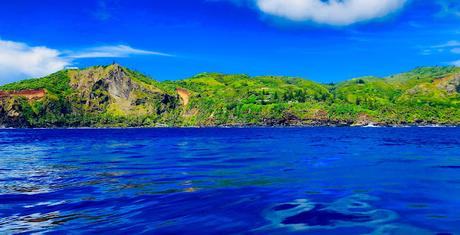
Every heard of “Pitcairn Islands” ! - the picturesque setting is taken from its official website. The Pitcairn, Henderson, Ducie and Oeno Islands, are a group of four volcanic islands in the southern Pacific Ocean that form the sole British Overseas Territory in the Pacific Ocean. The four islands—are scattered across several hundred miles of ocean and have a combined land area of about 18 square miles (47 km2).
The phrase "the empire on which the sun never sets” described certain global empires that were so territorially extensive that it seemed as though it was always daytime in at least one part of their territory. The concept of an empire ruling all lands where the sun shines dates back to the Egyptians, the Mesopotamians, the Persians, and the Romans. In its modern form, it was first used for the Habsburg Empire of Charles V, who, as Duke of Burgundy, King of Spain, Archduke of Austria, and Holy Roman Emperor, attempted to build a universal monarchy.
This is no post on Empires but on “Sunset” !! Sunset, simply is the point whence the sun disappears over the horizon. Twilight is the period between sunset and dusk. When the sun rises or sets, its position moves tangential to the ground, and the pathway from the sun to the ground is lengthened. The color palettes – more that of Golden yellow takes all over. It is likely that all problems vanish or get diminished when one sees something vast and overwhelming. There is more than a new ray of hope.
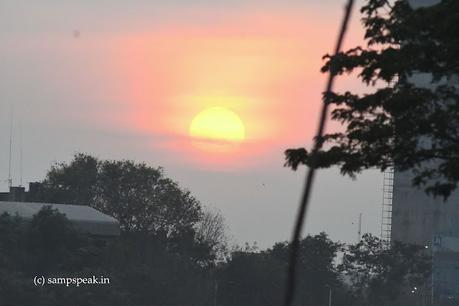
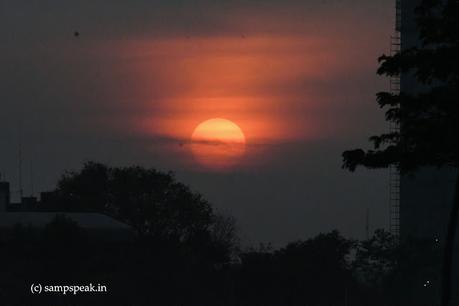
Sunset, is the daily disappearance of the Sun below the horizon due to Earth's rotation. As viewed from everywhere on Earth (except the North and South poles), the equinox Sun sets due west at the moment of both the spring and autumn equinoxes. The time of sunset is defined in astronomy as the moment when the upper limb of the Sun disappears below the horizon.
Sunset certainly would rank one among the most beautiful fleeting weather phenomenon in a day; perhaps the other one is Sun rise. People like them more than storms, rainbows, clear blue skies or nightscapes. As that pathway is lengthened, sunlight has the ability to hit more molecules in the air. The sun emits electromagnetic energy, as visible light. These molecules — like oxygen and nitrogen — are thousands of times smaller than the incoming visible wavelengths from the sun. Each one of those particles scatters, or changes the direction of, the sun’s visible energy. The air molecules scatter shorter wavelengths, such as blue and purples, removing them from our line of vision. Longer wavelengths, such as orange and red, can pass more freely to the ground, giving us the iconic sunset and sunrise colors.
The British empire spanned the globe. This led to the saying that the sun never set on it, since it was always daytime somewhere in the empire. It’s hard to figure out exactly when this long daylight began. The whole process of claiming a colony (on land already occupied by other people) is awfully arbitrary in the first place. Essentially, the British built their empire by sailing around and sticking flags on random beaches. Life has changed since – the vast Empire largely disintegrated, yet surprisingly – the sun hasn’t technically started setting on it again. Many newly independent British colonies joined the Commonwealth. Some of them, like Canada and Australia, have Queen Elizabeth as their monarch. However, they are independent states that happen to have the same queen; they are not part of any empire.
The sun never sets on all 14 British territories at once (or even 13, if you don’t count the British Antarctic Territory). However, if the UK loses one tiny territory, it will experience its first empire-wide sunset in over two centuries. Every night, around midnight GMT, the sun sets on the Cayman Islands, and doesn’t rise over the British Indian Ocean territory until after 1am. For that hour, the little Pitcairn Islands in the South Pacific are the only British territory in the sun. The Pitcairn Islands have a population of a few dozen people, the descendants of the mutineers from the HMS Bounty.
In April of 2432, the Pitcairn Islands will experience their first total solar eclipse since the mutineers arrived. Luckily for the empire, the eclipse happens at a time when the sun is over the Cayman Islands in the Caribbean. Those areas won’t see a total eclipse; the sun will even still be shining in London.
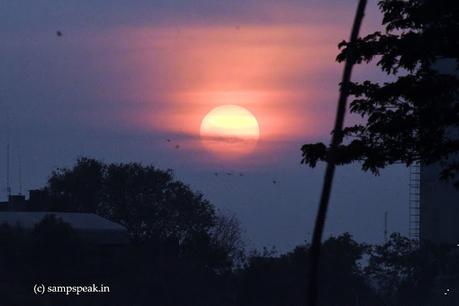
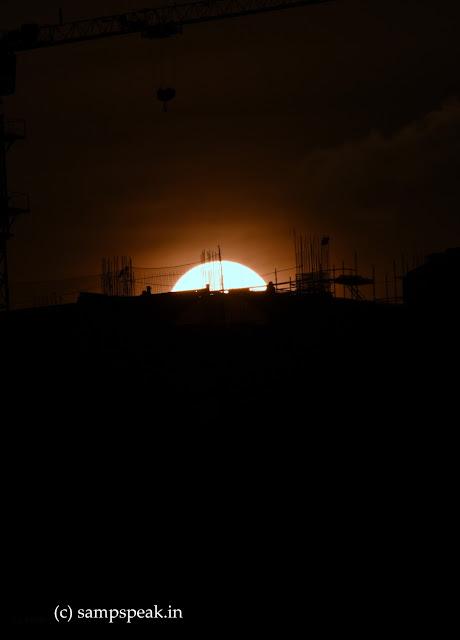
Sunset pictured by me today evening !
With regards – S Sampathkumar
15.2.2024

